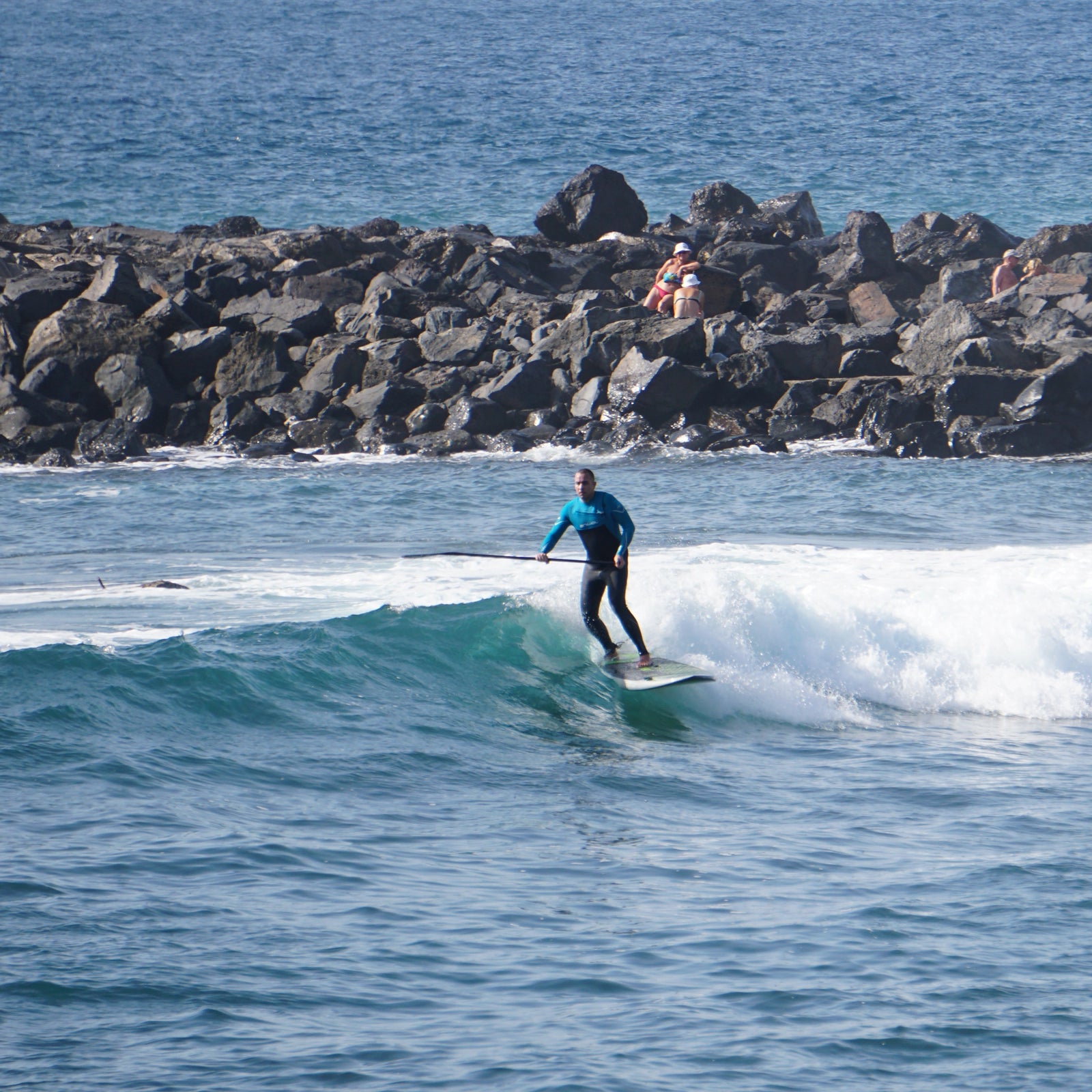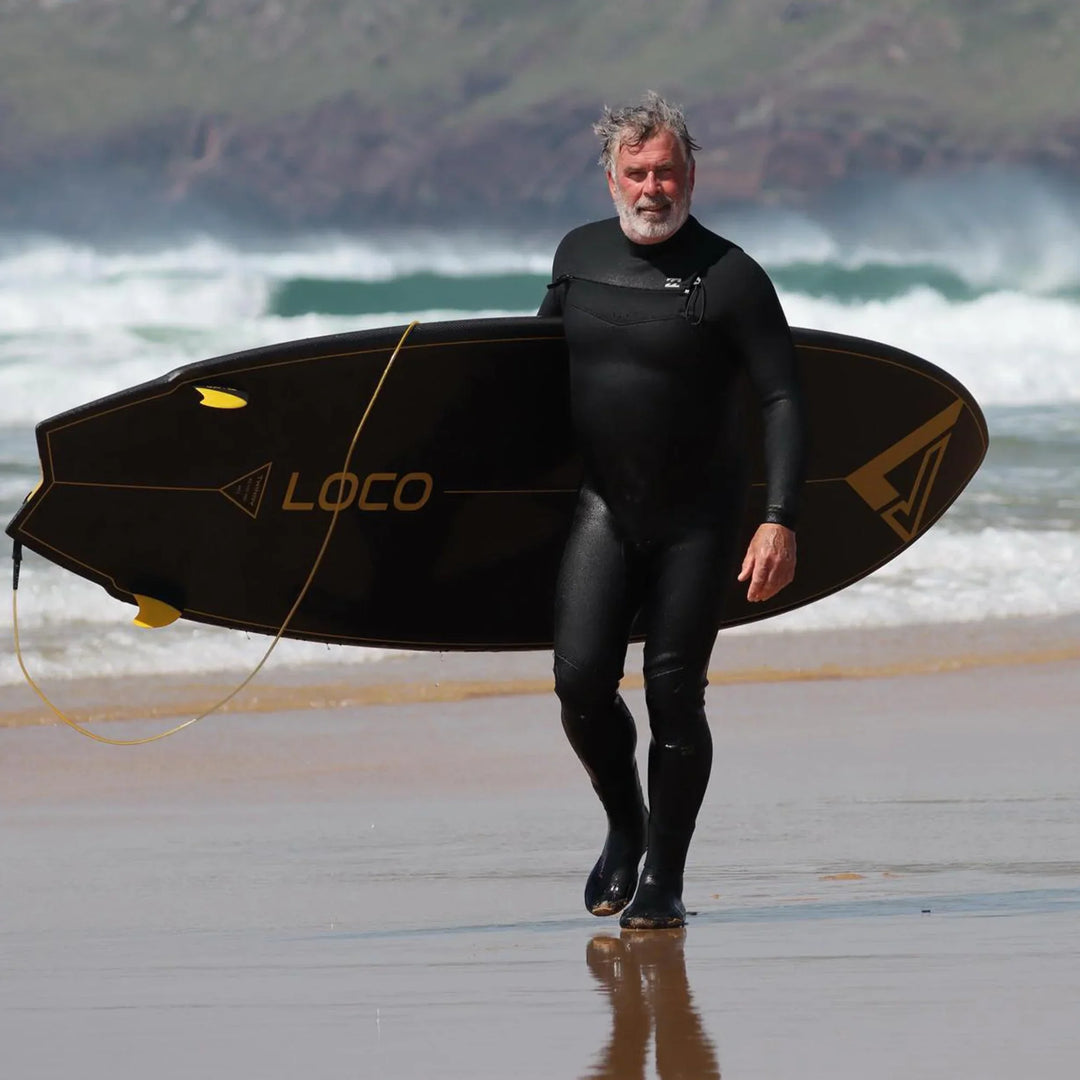The Advantages of a Hard Surf SUPs Over Inflatable Paddle Boards

Stand-up paddleboarding (SUP) has grown in popularity, attracting both recreational paddlers and serious surfers. When it comes to selecting the perfect board, the choice often boils down to two main types: hard surf SUPs and inflatable paddle boards. While each has its own set of advantages, hard surf SUPs stand out in several key areas. This article explores why hard surf SUPs are superior for surfing, while also acknowledging the benefits of inflatable options.
The Case for Inflatable Paddle Boards
Before diving into the superiority of hard surf SUPs, it’s important to recognize the benefits of inflatable paddle boards.
Convenient Storage and Portability
Inflatable paddle boards excel in convenience. They can be deflated and rolled up into a compact size, making them easy to store in small spaces and ideal for those with limited storage options. Whether you live in an apartment or have a car with a small trunk, an inflatable paddle board can fit where a hard surf SUP cannot. The compact nature of inflatable boards also makes them ideal for those who need to carry their board for some distance before reaching the water. Once you arrive, the inflation process, which typically takes around 10 minutes with a high-quality pump, is a small price to pay for the convenience of transportation.
Hassle-Free Travel
Traveling with an inflatable paddle board is far less stressful than with a hard board. Inflatables are less likely to get damaged by baggage handlers and can be packed into a suitcase or backpack. This makes them perfect for adventurers who love to explore different surf spots without the worry of board damage during transit. For those who frequently travel by plane, this can be a significant advantage. Avoiding oversized baggage fees and the risk of finding your board damaged upon arrival is a major plus for inflatable paddle boards. Additionally, their lighter weight makes them easier to carry through airports and other transit points.
Durability and Maintenance
While it may seem counterintuitive, inflatable paddle boards are quite durable. Made from military-grade PVC and reinforced drop-stitch construction, these boards are designed to withstand a fair amount of abuse. They can handle being bumped against rocks or scraped along the bottom without suffering significant damage. Maintenance is also relatively simple. Inflatables require regular cleaning and occasional patching if punctured, but these tasks are straightforward and don’t require specialized skills. This ease of maintenance makes inflatable paddle boards a practical choice for those new to the sport or those who prefer a low-maintenance option.
The Superiority of Hard Surf SUPs
Despite the advantages of inflatable paddle boards and some being marketed as inflatable surf SUPs (with Locos being some of the best on the market), hard surf SUPs offer numerous benefits that make them the preferred choice for serious surfers.
Performance and Stability
The primary advantage of hard surf SUPs is their performance. Hard boards provide superior stability and speed, which are crucial for surfing. The rigid construction allows for better control and manoeuvrability on the waves, giving surfers the confidence to tackle more challenging conditions. The solid nature of hard boards means they cut through the water more efficiently, providing a smoother and faster ride. This is especially noticeable when paddling against the wind or in choppy conditions. The added stability also means that hard boards are less likely to flex under the rider’s weight, which can be a significant advantage in maintaining balance and control.
Instant Responsiveness
Hard surf SUPs are incredibly responsive, offering instant acceleration and a more dynamic ride. This is especially important when catching waves. The rigid structure ensures that every paddle stroke translates directly into forward momentum, allowing surfers to catch waves more easily and ride them with greater precision. The responsiveness of hard boards also makes them ideal for performing advanced manoeuvres and tricks. Whether you’re looking to carve tight turns, perform cutbacks, or ride larger waves, the immediate feedback and control provided by a hard surf SUP (and it's sharp edge in the tail) can make a significant difference in your performance.
Durability and Longevity
While inflatable paddle boards are prone to punctures and leaks, hard surf SUPs are built to last. Made from durable materials like epoxy or fiberglass, these boards can withstand the rigors of surfing without compromising their integrity. A well-maintained hard surf SUP can last for many years, providing long-term value for your investment. Unlike inflatables, hard boards are less susceptible to UV damage, which can degrade materials over time. This makes them a better option for those who frequently surf in sunny conditions or store their boards outside. Additionally, the robust construction of hard boards means they can handle more extreme conditions, making them suitable for advanced surfers who push their limits.
Considerations for Choosing the Right Board
Choosing the right surf SUP involves more than just clicking "add to basket" on Amazon. It’s a significant investment, and seeking specialist advice is crucial. Here are some factors to consider:
Rider Weight
The rider's weight plays a crucial role in selecting the appropriate board. A heavier rider will need a board with more volume to ensure stability and buoyancy, while a lighter rider can opt for a smaller, more manoeuvrable board. Volume is typically measured in litres, and a higher volume board will provide more flotation and stability. For heavier riders, this means less effort required to stay balanced and a more enjoyable experience overall. Conversely, lighter riders can benefit from lower volume boards, which are easier to handle and offer better performance in terms of speed and manoeuvrability. As with everything ability plays a large role in which board may be right for you with advanced paddle surfers using relatively small boards versus bodyweight.
Local Conditions
The local surfing conditions should also influence your decision. If you frequently surf in choppy waters or small gutless waves, a board with more stability and a wider shape will be beneficial. Conversely, for cleaner conditions, a narrower, faster board might be more suitable. It’s also important to consider the typical wave size and type in your local area. For larger waves, a longer board with a pointed nose may be preferable, as it can handle the increased speed and power. In contrast, for smaller, more playful waves, a shorter board with a wider tail might be a better option, providing more manoeuvrability and fun.
Shape Selection
The shape of the board affects its performance. For instance, a board with a pointed nose will cut through waves more efficiently, while a wider nose provides better stability and easier glide into the waves. Tail shape also matters; a square tail offers stability and control, whereas a round tail allows for smoother turns. Other shape considerations include the board’s rocker (the curve from nose to tail) and rails (the edges of the board). A higher rocker can make the board more manoeuvrable and better suited for surfing larger waves, while a flatter rocker offers more speed and stability in smaller waves. Similarly, sharper rails provide better grip and control on the wave face, while softer rails offer a smoother, more forgiving ride.
The Role of Fixed Carbon Paddles
The choice of paddle is another critical aspect of your SUP experience. Fixed carbon paddles are preferred over cheap adjustable paddles for several reasons.
Instant Acceleration
Fixed carbon paddles provide instant acceleration. The rigidity of the carbon fibre ensures that all the power generated by your stroke is transferred to propelling the board forward. In contrast, adjustable paddles, especially cheaper ones, often lose power at the joints, reducing efficiency and making it harder to catch waves. The stiffness of carbon paddles means they don’t flex under pressure, allowing for more effective and powerful strokes. This can make a significant difference when trying to catch a wave or maintain speed in challenging conditions. For paddle surfers, the increased performance provided by a fixed carbon paddle can be well worth the investment.
Enhanced Control
The superior construction of fixed carbon paddles also offers enhanced control. The stiffness of the paddle allows for precise movements and adjustments, which is essential for navigating waves and performing advanced manoeuvres. Carbon paddles are also lighter than their adjustable counterparts, reducing fatigue during long sessions and allowing for quicker, more responsive movements. This can be especially beneficial when paddling in rough conditions or attempting complex tricks and turns. The ergonomic design of many fixed carbon paddles also ensures a comfortable grip, further enhancing control and reducing the risk of blisters or hand fatigue.
Making a Considered Choice
Investing in a surf SUP should be a considered decision. It’s important to seek advice from experts who understand the nuances of paddleboarding and can guide you in choosing the right board and equipment for your needs. At Loco, we have over 17 years of experience at the forefront of UK paddle surfing, with numerous National Champs, including current UK ladies champ Christina Doviak and world #9 Aaron Rowe, attesting to our board shaping expertise.
Specialist Advice
Getting specialist advice can make a significant difference in your SUP experience. Experts can help you navigate the various options available and provide recommendations based on your specific needs and preferences. Whether you’re a beginner looking for your first board or an experienced surfer seeking to upgrade your equipment, professional guidance can ensure you make an informed decision.
Long-Term Investment
A surf SUP is a long-term investment, and it’s worth spending the time and money to get it right. While it might be tempting to opt for cheaper options available online, these often come with compromises in quality and performance. Investing in a high-quality board and paddle will not only enhance your enjoyment of the sport but also ensure your equipment lasts for many years. High-end boards are often constructed with advanced materials and techniques, providing superior durability and performance. Similarly, investing in a quality paddle can make a noticeable difference in your paddling efficiency and comfort, further enhancing your overall experience.
Conclusion
While inflatable paddle boards offer convenience in terms of storage and travel, hard surf SUPs reign supreme when it comes to performance, durability, and overall surfing experience. The rigidity and responsiveness of hard boards provide a superior ride, making them the ideal choice for paddle surfers of all levels.




